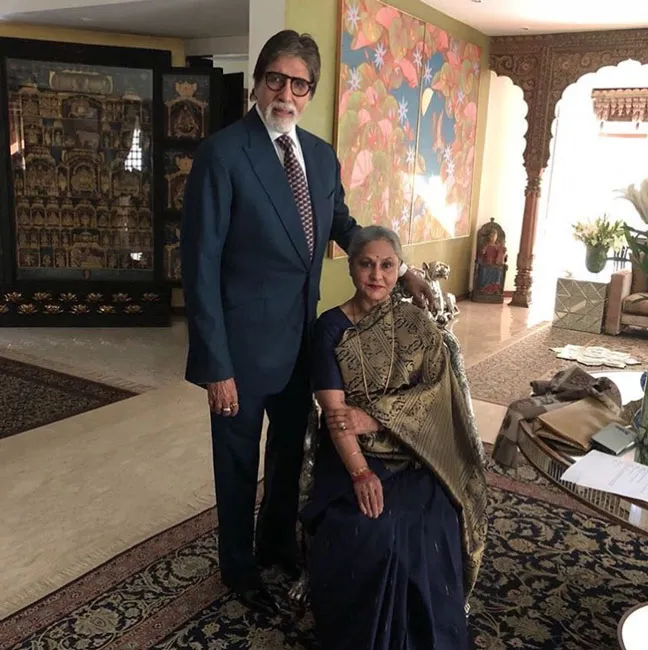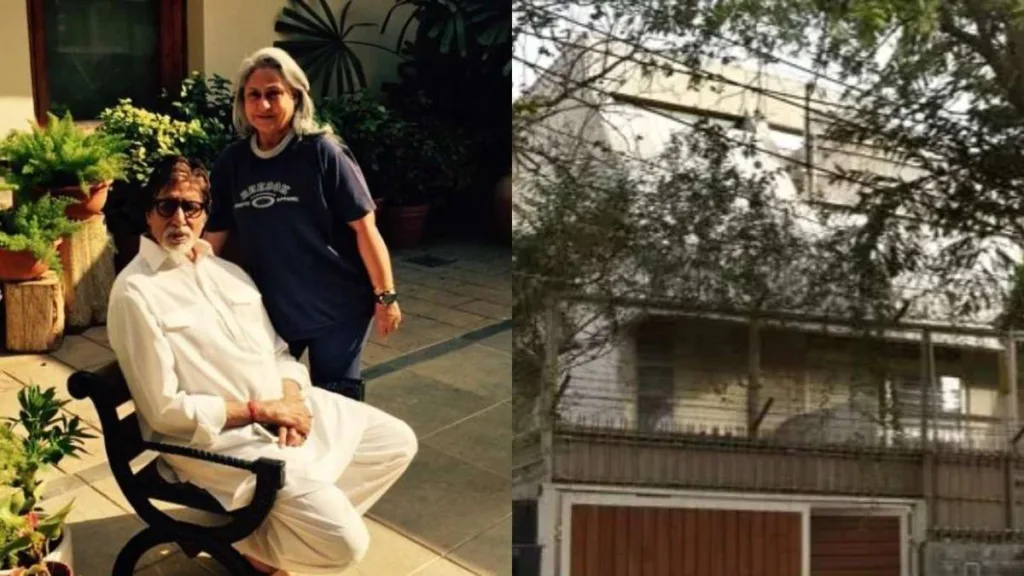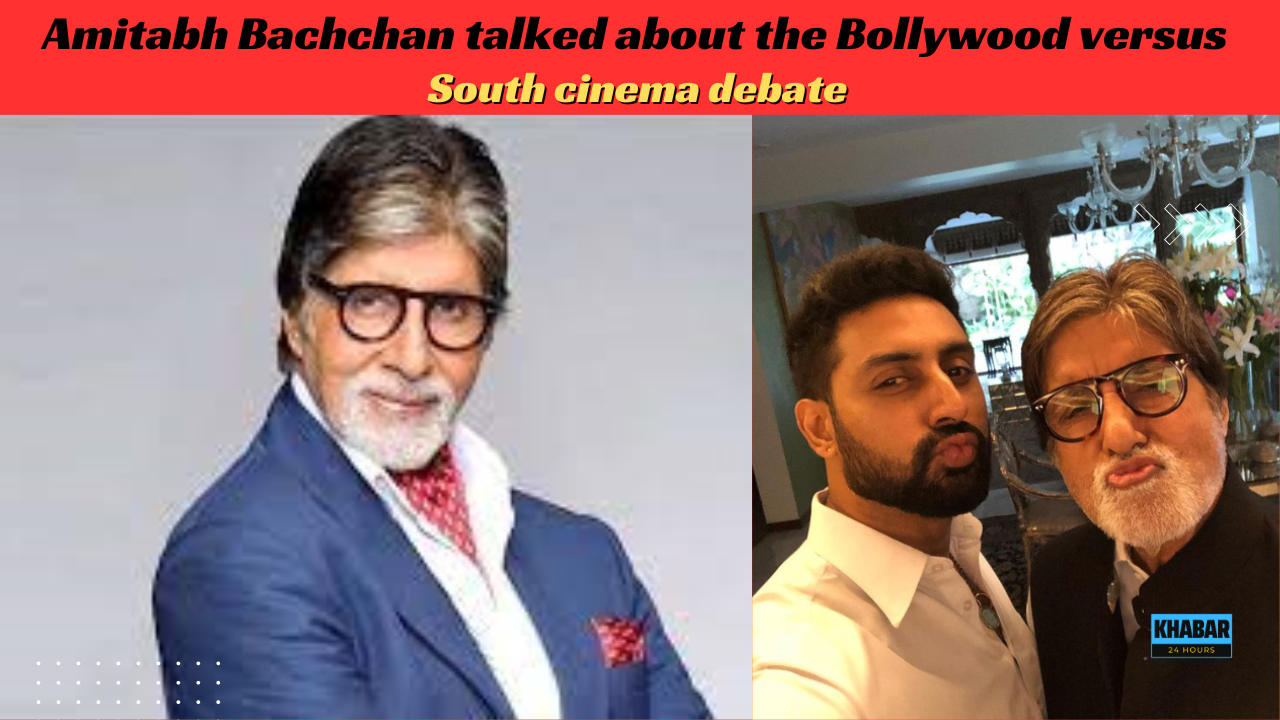During a recent event, Amitabh Bachchan shared his thoughts on the assertion that South Indian cinema is currently surpassing Bollywood.

Amitabh Bachchan, the famous actor, said that people often blame the film industry for changing the country’s morals. But he believes that it’s actually society that influences movies. He talked about this when speaking to students at the Symbiosis Film Festival in Pune. He also discussed how movies get criticized and the good and bad sides of new technology in cinema.
He attended the festival’s opening ceremony, hosted by Symbiosis International, along with his wife Jaya Bachchan. Amitabh Bachchan expressed that the film industry often faces criticism and accusations of altering the nation’s morals and people’s attitudes. He emphasized that movies are inspired by observations from nature, the world, and daily life, a sentiment his wife Jaya, who formally studied at the Institute (FTII), would agree with.

Bachchan reminisced about his father, the renowned poet and writer Harivansh Rai Bachchan, who had a fondness for watching Hindi movies repeatedly. The actor shared that his father admired the poetic justice often depicted in cinema. He recalled how, during his father’s final years, he would watch movies on cassette every evening, even if they were repeats. Bachchan questioned his father about this habit, asking if he ever got bored. His father’s response was that through Hindi cinema, he found poetic justice in just three hours, a rarity in real life. This, according to Bachchan, highlights the unique power of cinema to impart profound lessons.

Bachchan praised Malayalam and Tamil films for their genuine portrayal, but he disagreed with the notion that South cinema is surpassing the Hindi film industry. He mentioned that regional cinema is thriving, but many filmmakers from the South say they are essentially making similar films to Hindi cinema, just with different settings. According to him, some Malayalam and Tamil films stand out for their authenticity and beauty. He emphasized that it’s unfair to compare regions and claim one is better than the other.
When asked about technology changes in the industry, Bachchan remembered when actors had to nail their performance in one take due to limited film. They couldn’t redo scenes because it would waste film and the producers wouldn’t allow it. Nowadays, with digital technology, actors can do many retakes without wasting film. While this can benefit directors, some actors, like Bachchan, feel it’s tiring to repeat the same thing. Younger generations wonder how actors managed to get it right on the first take, but Bachchan explains it took practice and discipline, unlike the opportunities for improvement provided by modern technology.

Bachchan also voiced his concerns about the use of Artificial Intelligence (AI) in movies and on actors. He mentioned that many people, including himself, are worried about face-mapping technology, which was a major issue during Hollywood strikes. He shared an experience where a Mumbai studio demonstrated face mapping on Hollywood actor Tom Hanks, illustrating how actors’ entire bodies can be digitally manipulated and used without their consent.
Bachchan mentioned that there are many objections regarding this issue, and he referred to a strike in Hollywood by artists. He explained that producers and directors claim ownership of actors’ face mapping, considering it their property to use whenever they want. He humorously added that there might come a time when Symbiosis would call upon his AI version rather than him personally.

Jaya Bachchan, aged 75, also addressed the audience at the event. She advised the students not to blindly imitate the Western culture. She encouraged them to embrace their own country’s values and traditions. Jaya emphasized the importance of cinema and suggested focusing more on storytelling rather than excessive music.

